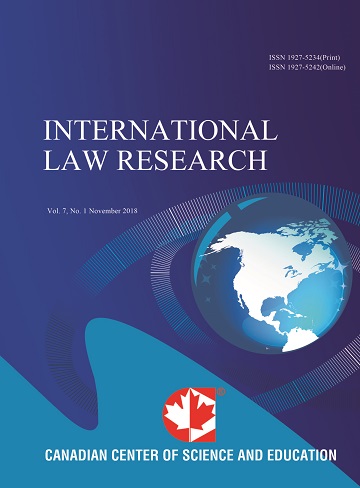Emergence of Studies into Contemporary International Law with Regard to Rules and Principles for Peace-making: From the Perspective of Diachronic Analyses of Diplomatic Negotiations after the World Wars
- Keisuke Minai
Abstract
Although the rules and principles for post-conflict settlement have been frequently examined in recent years, little research has explicitly examined the phenomenon yielding incentive to the contemporary discussions about these rules and principles among international lawyers. That is, what is the formation process of the shift to the peace-making that occurred after the Second World War? This paper examines one of the facets of this phenomenon from the perspective of tracing diplomatic historical facts through diachronic analyses of diplomatic negotiations in the processes of drafting the Versailles Peace Treaty and the Treaty of Peace with Japan, setting up concepts adopted by persons in charge as the barometers. These analyses find that compared to the Versailles Peace Treaty, which had harsh, punitive, and discriminatory characteristics, the peace-making process of the Treaty of Peace with Japan took on a more generous nature tempered by a rigorousness in the legal aspects of the treaty.- Full Text:
 PDF
PDF
- DOI:10.5539/ilr.v3n1p86
Journal Metrics
h-index (2017): 2
i10-index (2017): 0
h5-index (2017): N/A
h5-median (2017): N/A
Index
- CNKI Scholar
- COPAC
- CrossRef
- DTU Library
- EuroPub Database
- Excellence in Research for Australia (ERA)
- Ghent University Library
- Google Scholar
- Harvard Library
- Infotrieve
- Jisc Library Hub Discover
- LOCKSS
- Open J-Gate
- PKP Open Archives Harvester
- Publons
- ROAD
- Scilit
- SHERPA/RoMEO
- Stanford Libraries
- Ulrich's
- UniCat
- Universe Digital Library
- UoS Library
- WorldCat
Contact
- Joseph TaiEditorial Assistant
- ilr@ccsenet.org
